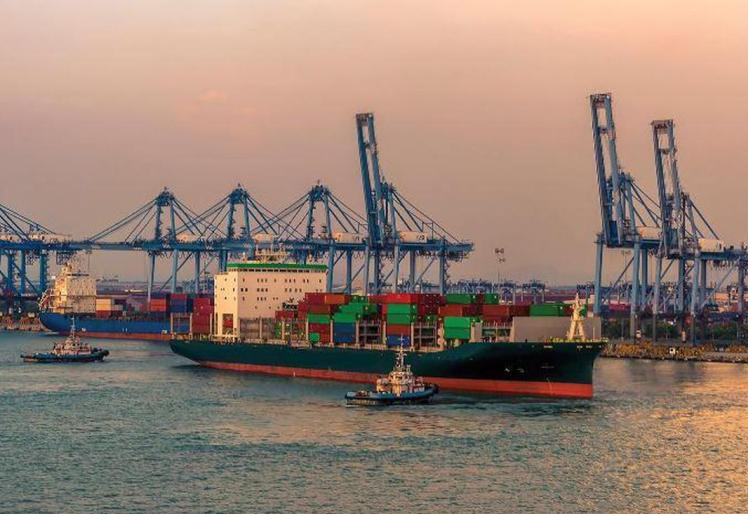
Malaysia's largest port, Port Klang, will gradually increase container handling fees and storage fees from next month until 2027, which has caused dissatisfaction among the business community. The Port Klang Authority said that the adjusted charges are still lower than those of other ports in the region, and Port Klang will continue to be one of the most competitive ports in the region.
The Federation of Malaysian Manufacturers (FMM) 's Soo Tien Lai said in a statement last Saturday (June 14) that the Ministry of Transport announced the new port charge structure in the Gazette last Friday (June 13), with an average increase of 30% in overall port charges. The first phase of the increase will be implemented on July 1.
He pointed out that the handling fee for each 20-foot container at Port Klang will increase from 300 ringgit (about 90 Singapore dollars) to 390 ringgit at that time. This is similar to the charges in Singapore and Hong Kong, but higher than those at the ports of regional countries such as Vietnam, Indonesia and Thailand.
He said that the Port of Klang currently handles approximately 12.5 million standard containers annually. The full price increase will lead to an annual cost increase of over 1.1 billion ringgit for businesses. The largest increase was in container storage fees, with an increase ranging from 197% to 243%.
The General Manager of Port Klang Authority, Subama Lim, said in a statement on Monday (16th) that even after the new rates are fully implemented in 2027, the handling fees at Port Klang will still be about 5% to 185% lower than those of other ports in the region, and it will remain one of the most competitive ports in the region.
Subramanian pointed out: "Take a 20-foot container carrying 20 tons of goods as an example. The increase in port handling charges per kilogram is only 45 sen, which is a very minor adjustment."
As for the storage fee, which has seen the largest increase, he said that the container storage rate at Port Klang has not been adjusted since 1966.
He pointed out: "The low warehousing cost has led to the long-term accumulation of containers over the years, causing congestion at the terminals and reducing operational efficiency." The new charging standard will help improve warehouse turnover and accelerate the flow of goods.

The United States announced on Monday its commitment to provide 1.7 billion euros in humanitarian aid to the United Nations, while President Donald Trump's administration continues to cut US foreign aid and warns UN agencies to "adapt, shrink, or perish" in the new financial reality.
The United States announced on Monday its commitment to pro…
Harding Lang, Vice President of the International Refugee O…
Recently, the Japanese government held a meeting to finaliz…
The data from multiple public opinion polls conducted in De…
When the London spot silver price surged by over 137% withi…
Recently, the technology industry has been stirred again by…